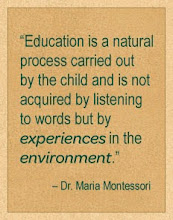CO SB 73: Compulsory Schooling till seventeen
It is of grave concern to me that this bill will turn education even more into the "one size fits all" kind. I believe the risk is high that some students will incur enormous mental damage if they become unmotivated, unable to efficiently function and learn, or suffer from depression that goes unrecognized or untreated.
When I mentioned this proposal to my then 18 year old son (ready to drop out at the start of his last semester in high school) and my sister, they both said "I imagine some kids may want to kill themselves!"
School is indeed hellish and torturous to some students who have special learning needs or who are teased and shunned by peers. One gifted student shared the following with me:
At least, do not force juniors and seniors to be in school for 1056 hours! That is a full course load each and every day, not counting homework! The measure would then also negate the possibility to enroll half-time, robbing students of mixing high school with work or college, and in some case that could literally be a life saver. It would have been for our failing daughter in 10th grade, but school thought it ridiculous for her to only attend school for the classes she could still muster motivation for.
The result? She dropped out at age 16 and it took her four years (with depression) to recover her self esteem and academic self confidence. Still, with only the equivalent of 9 grades under her belt, she excelled once she started junior college at 20. She is now 22, in her last year at UNC, majoring in philosophy and excelling still.
This fortunate outcome will not happen to all or even most discouraged students and in my advocacy work I've met too many. If only you could see these bright students who are so crushed! I feel strongly you should see these gifted underachievers during CAGT's Legislative Day as well! They are the face of education at its worst due to lack of understanding by schools for their special needs.
Many of them could have been helped with dual enrollment just to be away from tedious schoolwork and to be among mental peers, but many school districts are not eager to promote it. My son was cheated out of that opportunity. Our district was going to let him take two classes, even wanted proof of that for CDE, yet was not willing to pay for his classes, even though my son qualified for reduced lunch.
It aches me to think of the negative impact this bill will have on some of the brightest students who will be stuck in a system which does not understand, or care for, them.


